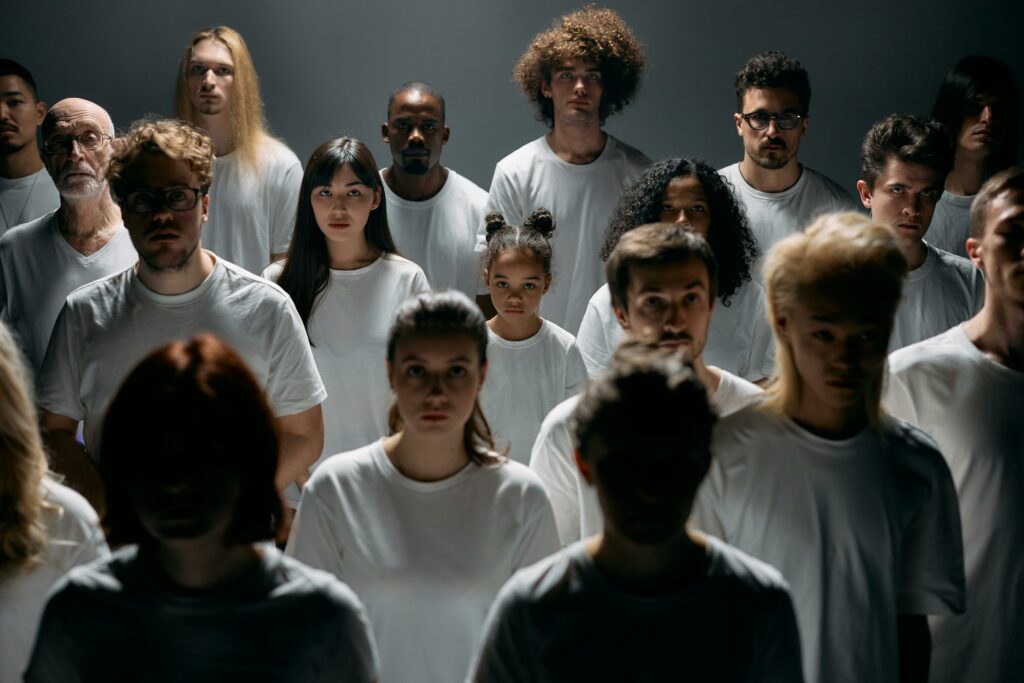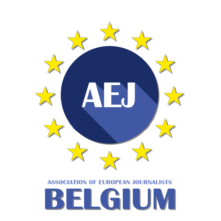
By Wenka Weber
Simone Veil, Marie Curie, and Geneviève de Gaulle-Anthonioz all had a major influence on their society – in politics, public life and science. Not only were they pioneers of their time, they were also honoured as important figures in France in the Panthéon. Yet the sight of women in the Panthéon is probably a rather rare one.
In mid-February, participants of the ‘Her Voice, Her Power’ project met and visited the historic building in Paris to discover and learn more about the women who have played a crucial role in France’s history. This visit was the beginning of the two-day programme, organised by the ‘Jean Monnet Association’ (AJM), which aimed to understand the role of women in political and social institutions today. The AJM is a member of the ‘Her Voice, Her Power’ network funded by the European Commission’s ‘Citizens, Equality, Rights and Values Programme’ (CERV).
At the fourth meeting of the network, attended by NGOs, local officials, academics and companies, women took part in a variety of talks and visited the French National Assembly to share their experiences and exchange with the participants about barriers and opportunities for women in political and leadership positions.
“Self-confidence is the key to a successful path,” said Constance le Grip, member of the French parliament and former MEP, who sat on the Committee on Women’s Rights and Gender Equality.
Le Grip told the participants that it was important that women gain more presence, visibility and assertiveness through more female empowerment. Underlying this objective she hosted the encounter in the French Parliament of that day, bringing together the different European project partners as well as representatives of other civil society and business organisations.
She spoke in favour of women having the courage to take part in discussions, ask questions and engage in meaningful dialogue. MEP Lina Galvez also advocated at the event for women to play a more prominent leading role in European politics.
Inspiration
There is still much to do to promote political parity of men and women, both in France and abroad. Marie-Laure Charles, member of the Administration Council of the Jean Monnet Association, and elected local politician in Paris, told AEJ Belgium that despite a parity law introduced in 1999, only a slightly over a third, or 208 of the 577 members of the National Assembly are women.
“I gained a deeper understanding of the different ways to engage and initiate change, the challenges these women are addressing, and the goals they are striving to achieve,” project partner Chiara Criseenti from Italy told AEJ Belgium. “I was truly inspired by [the participants] strength and confidence – how they have empowered themselves and are committed to helping other women reach their goals.”
During the event, representatives of institutions from across Europe presented projects aimed at improving the position of women in society and in leadership positions. In the field of media, Slovenian non-profit organisation ‘Ona Ve’ (She Knows) aims to increase the visibility of women. Only 24% of media appearances in Slovenia feature women. As such, the organisation aims to connect female experts from different fields and promote their visibility to make it easier for media organisers to find and feature them. The organisation also proposes structural changes to tackle the issue of inequality, advocating for women’s self-confidence in education and financial support for companies to support maternity leave and to tackle the gender pay gap.
In total, the event brought together eight partnering organisations discussing empowerment projects in Ukraine, as well as projects in other regions of the EU. AEJ Belgium partner AJM played a key role in the event, advocating for women’s empowerment at a European level and tracing the legacy of Jean Monnet, who they believe laid a framework for women’s empowerment. Often regarded as a founding father of the EU, his contributions were instrumental in laying the groundwork for the European Coal and Steel Community (ECSC), eventually evolving into the European Union we know today.
The group highlighted the role of some key early EU figures in advocating for the rights, including Louise Weiss, an advocate of women’s suffrage and Simone Veil, the first female president of the European Parliament. In 1992, the EU formally recognised gender mainstreaming with the Maastricht Treaty of 1992, placing women and men at the center of political decision-making, including both genders in policy-making and ensuring their equal participation.
Only 8% of CEO are women
Even today, as highlighted by Miguel Martín Ramos, Vice President of AJM, women’s causes are advanced by the upper echelons of the EU, as illustrated by the case of the first female president of the European Commission, Ursula von der Leyen, and the appointment of a dedicated (but former) Commissioner for Equality, Helena Dalli. He also highlights the EU’s Gender Equality Strategy, “which aims to create a gender-equal Europe where gender-based violence, sexual discrimination and structural inequality between women and men are a thing of the past.”
Despite coordinated action at both the grass-roots and EU level, the road to equality remains long and slow. No EU member state has achieved equality, and inequalities persist: women are still under-represented in leadership positions, even in the EU’s largest companies, where only 8% of CEOs are women. Women also continue to earn, on average, 16% less than their male counterparts and face barriers to entering and remaining in the labour market.
The programme aims to provide a platform for women to continue to overcome these challenges and understand women’s role in this change.
“In this meeting we have focused on the implementation of the 2030 Agenda, specifically on the objectives related to peace, just societies, strategic alliances with gender mainstreaming, (…) as well as on providing solutions to the problems that persist in society, relating to equality,” said Raquel Martí Signes, leader of the Spanish delegation to the project.
